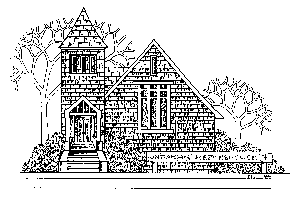Tuesday, October 26, 2010
Muslim Student Association Looks to Expand
As Majidi opens the MSA General Body Meeting, he says, "Bismillah," which is Arabic for "In the Name of Allah." From there, he and President Salman Khanani introduce to the group the idea of creating committees for Community Service and Islamic Education.
"[We, as Muslims need] to engage and educate Muslims and non-Muslims," said Majidi when talking about Islamic Education as a way to get rid of the negative stereotypes about Muslims.
As for Community Service, the group is already working with other groups on campus to raise money for the Pakistani Flood Relief. In the past, the MSA has held events such as Hoops for Haiti, a basketball tournament that raised money to help after the earthquake that devasted Haiti last year.
Ahmend Zakaria, a Pakistani man studying at the University of Massachusetts Amherst, is happy to be helping his country with a group that helped him to transition to this new culture.
"When I first came here, I lived in Southwest, and it was a culture shock," said Zakaria. "[I was introduced to the MSA when] I met a Muslim R.A. at my cluster office, and he spoke to me in Urdu [the national language of Pakistan]. It was nice to speak to someone in Urdu in America because I never did."
One of the reasons that Rahmah Mohamad Pauzi, a transfer student from Malaysia, chose UMass Amherst when looking at schools is because of the MSA.
"I looked to see how strong the MSA organization before I even came to America," said Pauzi, "because I knew I would need to have a strong Muslim support."
Karima Allam, a senior at the university, had already experienced the MSA as a sophomore in high school through older friends.
"I went to Ed dinners," said Allam. "I met the people, and they were amazing so when I was applying to college, I made sure to apply here."
Noman Khanani, the events coordinator of the MSA, says that transitioning into the MSA when beginning college was easy.
"I knew a lot of people in the MSA," said Khanani. "I came to a lot of events and meetings and got to know the administration. Even though we are an organiztion, we are all friends. We all hang out together, and we all eat lunch and dinner together."
There are about 40-50 members in the MSA, but not all are actively involved. The boardmembers meet more often than the rest, but the new committees will meet every other week.
To get more information on the Muslim Student Association or to join, you can go to the Campus Pulse page on the group, or send an e-mail to umassmsa@gmail.com.
To end this blog post , I am going to say the same thing Majidi said to end the meeting: "Janakumullah Khair," Arabic for "May God Reward You All."
Wednesday, October 6, 2010
Unitarian Universalism

Picture of the UUSA courtesy of the UUSA website.
 This is a picture of the stain glass window inside Unitarian Meeting House in Amherst, MA. Photo courtesy of Google Images.
This is a picture of the stain glass window inside Unitarian Meeting House in Amherst, MA. Photo courtesy of Google Images.
50 years later, Unitarian Universalists still have many of the same ideas and values. Whenever I am asked what Unitarian Universalism is, I say that it is a religion based on the teachings of Jesus Christ, rather than worshipping Jesus Christ or some form of God.


This is the major symbol of Unitarian Universalism, the flaming chalice. Courtesy of the UUSA's website.
"I particularly love the ability to doubt and question and explore ideas that Unitarian Universalism not only allows, but provides," said Reverend Wohler. "I also love the fact that UU provides the opportunity to be ''religious' in a different way- that we can have faith without specific beliefs. (Faith [as] in the sense of knowing we are held and known in the universe, not faith in a supernatural deity.)"
50 years ago, the Unitarians and the Universalists merged to make the religion known today as Unitarian Universalism. The religion is practiced all over the nation, and all over the world. For more information, visit the Unitarian Universalism Association's website (http://www.uua.org/).